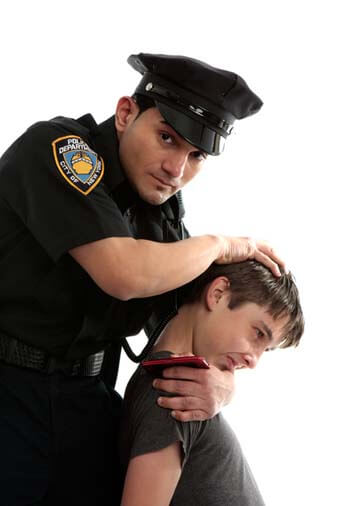

Looking for up-to-date commentary on the latest cases of police brutality or police misconduct and how it can affect you? Visit Kenneth Udoibok’s premier online blog: Brutality Lawyer
Kenneth Udoibok, P.A. is Minnesota’s Premier Police Misconduct Lawyer Fighting Against Police Brutality
Kenneth Udoibok, P.A. has built a reputation for aggressively pursuing civil rights cases through the courts. He has built a tradition of successfully litigating civil rights cases and managing complex civil rights lawsuits.
Kenneth is committed to using the legal process to produce systemic change. His focus on civil rights law covers a broad range of civil liberties matters that are protected by the United States Constitution, the Minnesota Constitution, and many other state and federal laws.
Kenneth Udoibok, P.A. has the skills, experience, and resources to effectively handle a broad range of civil rights cases such as:
- Fair Housing Act Violations
- Slum Housing and Section 8 Litigation
- Rights of Institutionalized Persons
- Prison Conditions
- Free Speech Cases
- Discrimination on the Basis of Race, Gender, Religion, National Origin, Sexual Orientation, Age, or Disability
Kenneth Udoibok, P.A. is committed to combating excessive force
Kenneth Udoibok is particularly committed to representing victims of police abuse in courts around the United States. He pursues excessive force cases because he firmly believes that civil rights litigation is a moral and philosophical imperative.
Under Minnesota Statute 609.224, an assault committed by a police officer can be charged as a gross misdemeanor or felony offense depending on the circumstances. Police officers can be held criminally and civilly liable for excessive force and assault. A police officer who commits an illegal assault is therefore as culpable and liable for his or her actions as any civilian. Most importantly, a law enforcement officer who willingly assaults another person in the line of duty must be held responsible for his or her actions because in his or her role as a sworn peace officer, he or she ought to know better. The long term effects of a police officer assaulting a citizen is not merely physical. Many people who are assaulted by “peace” officers experience severe depression, nightmares, and post-traumatic stress disorder. An assault, whether physical or mental, undermines and destroys the faith we all have in law enforcement in general. Those who commit assault should be held accountable for his or her actions regardless of whether or not they wear a badge. If you or someone you know endured an assault at the hands of a police officer you the right to take legal action. Let a knowledgeable, dedicated, and experienced police misconduct lawyer like Kenneth Udoibok help restore your faith in our legal system.
Do you need more information?
Questions & Answers on Excessive Force
Whether a law enforcement official used excessive force depends on the facts of each case. This is a rapidly evolving body of law and thus it is difficult to say if the police conduct in your case meets the standard of excessive force. In the past however, courts have held that conduct such as unjustified firearm use, prolonged physical restraint, overuse of tasers and pepper spray, unnecessary physical strikes, verbal abuse, unwarranted vehicle pursuits, and neglecting to provide required medical aid have risen to the level of excessive force.
If the excessive-force victim succeeds at trial, a jury may allow damages for pain, suffering, and to make an example out of the defendant's conduct–also known as “punitive” damages. The victim may also get the losing party to pay the victim's attorney's fees (and costs), under 42 U.S.C. § 1988.
In order to establish that a law enforcement official used excessive force, the victim must prove 1) that the officer intentionally committed certain acts and 2) that those acts violated the victim's Fourth Amendment right not to be subjected to excessive force. The second element is the most difficult to establish. In the inquiry into whether an officer's conduct violates the Fourth Amendment, the court considers a wide variety of factors. For example, courts consider whether the use of force was objectively reasonable from the perspective of a reasonable officer at the scene, without the benefit of hindsight. Factors such as the threat posed by the suspect, the severity of the alleged crime, and whether the suspect was actively resisting arrest are also often taken into account. Additionally, courts may consider any established law or precedent that defines what constitutes excessive force within a given jurisdiction. Here in Minnesota especially in light of our involvement on the international stage with police violence, those laws are constantly changing.
These changing laws are precisely why it is important to be represented by a lawyer in all excessive force cases. If you or somebody you love has been hurt by the police, do not hesitate to give our office a call.